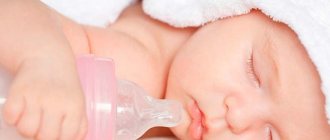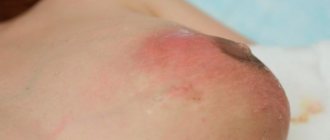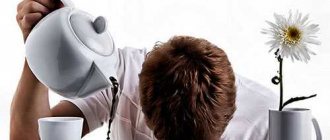Almost all parents consider diapers the best invention of mankind. They allow mothers to live without the need to constantly wash diapers and baby clothes, and dads to fearlessly hold a child in their arms, due to which we have more time to enjoy happy motherhood (and fatherhood, of course). A child sleeps better in a diaper, and you can take him on a visit without worrying about various surprises. However, the baby is growing, and sooner or later the time comes to part with diapers.
Weaning a child off diapers at night
is always a decisive step forward. And doing this is a little more difficult than teaching him to go potty during the day. At night you will not be able to use the same techniques as during the day. And, of course, a lot depends on the character of your child. There are children who wake up easily, but then have difficulty falling asleep, and it happens the other way around, when the mother cannot wake the child up for potty or the child wakes up screaming. In general, everyone has their own difficulties. So what should you do? Let's sort it out in order.
Earlier does not mean better
Before considering specific recommendations from specialists and experienced mothers, it is advisable to understand the psychological implications of the entire process. One of them is whether the mother is trying to wean her child off the diaper too early? Due to the fact that such successes of a child are a source of pride for many women, they try to force the baby to learn to use the potty before the age of one. For the vast majority of children, this is not just an unbearable burden, but also colossal stress.
According to the famous pediatrician Evgeniy Komarovsky, stable control over bowel movements and urination should begin no earlier than the period from 22 to 30 months.
Theoretically, even a newborn can go into the potty, but if we are talking about complete weaning from a diaper, then it is worth starting from an age of at least 2 years. And here everything depends on the maturation of the central nervous system, which each child undergoes in its own way.
Victoria (32 years old, mother on maternity leave): “It was important for me that Seryozha was the first in everything: he went before everyone else, said the first word, was potty trained. We had the most problems with the last one - no matter what I did, he did not ask even during the day, not to mention leaving him without a diaper at night. In my mind, I understood that a year was still very early, but I really wanted to show off to my friends how great my son was. Training began to show success only at one year and 11 months, and we began to sleep at night without a diaper at the age of 3.”
The most important advice that the world's leading pediatricians give to mothers is not to adjust your child to the successes of the children of friends or neighbors, but build on his personal developmental characteristics.
There is a study that suggests there is a connection between brain-controlled urination and a child’s ability to climb stairs independently. Hence the conclusion that this skill depends on the condition of the bladder muscles.
When the muscles responsible for the process of urination are finally strengthened, and neural connections in the brain and spinal cord are formed, only then urination will become a controlled procedure.
According to official medicine, the ability to control urination, to do it consciously, begins to develop between 1.5 and 3 years, and is finally formed at 4 years. This is a fairly broad time frame for weaning a child off diapers. Every mother should, first of all, take into account the individual developmental characteristics of her child.
What harm can diapers cause?
The harm that can be caused by frequent and incorrect use of diapers is ambiguous for children of different sexes.
For boys
For boys, constant wearing of diapers is fraught with disruptions in the development of the reproductive system. As is known, reproductive function in future men begins to develop in the first months of their life. It consists in the laying of hormone-producing cells, which in the future are responsible for the production of testosterone. The comfortable temperature for their proper formation is 36.6°C, and long and frequent stays in a hot diaper can lead to overheating of the scrotum.
For girls
Mothers raising girls need to carefully monitor the condition of the diaper, since pathogenic microbes from the child’s feces can easily penetrate the vagina and disrupt its microflora. Inflammation of the female genital area at an early age, which is not treated, can lead to infertility during childbearing years.
Under no circumstances should children of any gender be in diapers at elevated body or environmental temperatures.
Preparation for the process
What should parents do if they want to stop their child from peeing in diapers at night?
- First of all, prepare your “inventory”. When a child who is used to peeing in a diaper in his sleep urinates on the bed, not only the sheet will be wet. Pajamas, a blanket, and sometimes a pillow... Therefore, stock up on all these things in double, or better yet, triple quantities.
- Stock up on wet wipes or a bowl of warm water and a towel. Wiping the baby with a damp cloth is better than taking him to the bathroom to wash, where he will finally wake up. And you bathe in the morning.
- Buy a night light or a lamp with soft light. If up to this point you and your baby are used to doing without light, coping with the worries of the night, then making the bed in the dark is not an easy task. But in order not to completely drive away the baby’s sleep, the soft light of a night light will be enough for you.
- For the time when you wean your child from using diapers at night, be sure to use oilcloth. It’s up to you to decide which one to choose: reusable medical oilcloth or special disposable waterproof diapers. If the baby does not wake up and pee, the moisture will not spread throughout the bed and mattress (this is fundamentally important for the mother). Although the baby will still feel the oilcloth, it will not cause severe discomfort. If you put it under a sheet and cover it, for example, with a flannelette diaper, then the child may not notice anything.
There is a hidden educational moment here: the child will feel uncomfortable sleeping wet, he will wake up and call his mother. Next time he will wake up first and ask his mother to take him to the toilet rather than pee in his pajamas. According to pediatricians, it is very important for parents to adhere to the established goal in this matter. For several weeks after switching to diapers, the baby will actively go to the toilet on his own, and parents may get up to change the bed up to 3 times a night. But the longer the child lies in the wet, the more stable a cause-and-effect relationship is formed. Consequently, he will begin to ask to go to the toilet with great zeal.
Forming a skill
If you have decided to wean your baby off diapers while sleeping at night, you should strictly adhere to the chosen line and not “give up” by putting on a diaper again if you are tired of jumping up in the middle of the night and remaking his bed. The learning process requires self-discipline, first of all, from parents.
It is important that a clear cause-and-effect relationship is formed in the child’s brain: urge - potty (and for this you need to wake up on time). Discomfort from wet clothes and bed helps the body quickly develop the habit of waking up when you have the urge to urinate.
That is why you should not use absorbent disposable diapers and put your baby to sleep without clothes, as some parents do. They make it easier to eliminate the consequences of a nighttime “accident,” but at the same time do not put the baby in conditions under which his brain learns to give the command to wake up in time. The child should feel the need to ask to use the potty.
How to wean yourself off diapers at night: basic rules
- The fundamental rule is to limit the amount of liquid a child drinks before bed. This does not mean that if your son or daughter asks for a drink, you should refuse. You should try to reduce the volume and eliminate the consumption of drinks that produce a hidden diuretic effect (for example, citrus fruits, grape and apple juice, dried fruit compotes and rosehip decoction). The best drink at night is still water.
- Create a ritual before bed. For example, I put on pajamas, read a book, peed on the potty or in the toilet and went to bed. It is important to stick to the ritual at the same time.
- If we are talking about a fairly old child (3-4 years old), you definitely need to talk to him before going to bed, and do this more than once. Explain to your child that today he will sleep without a diaper, and if he wants to go to the toilet, he just needs to wake up mom or dad. This idea must be conveyed to the child every day, since literally the next day he will forget about it.
- Do not remove the oilcloth for several months after the baby has stopped urinating at night. “Accidents” can still happen.
What not to do
- You can't force him to do something he doesn't want to do. This can provoke a serious psychological disorder in him, which will be the root cause of many problems that will require further work with a psychologist.
- You cannot shout at a child or shame him. Even at 3 years old, it is not your child's fault that you have to remake his bed for the third time in a night. After all, weaning off a diaper is your decision, not his.
- You should not set an alarm every 3 hours, wake your child up and put him on the potty. No one needs this, especially if the baby is fast asleep. It makes more sense to observe his actions in a dream. If the child is tossing around, unable to sleep, and whining, the mother should try taking him to the toilet or trying to sit him on the potty.
- You cannot take your child into your bed. No matter how much you want to sleep and no matter how difficult it may be during the weaning period, after changing the clothes, put the baby in his crib. Otherwise, you risk facing a new problem: how to wean your child from sleeping with his parents.
- Don't give up and go back to diapers. If you have started the process and it seems like it will never end, you are wrong. It has been proven that any habit is formed in 21 days. Your baby may need more time. So be prepared and wait patiently.
Useful tips
To prevent your child's bladder from becoming too full at night, reduce the amount of fluid he drinks before bed. After dinner, let the baby drink as much milk, tea or juice as he needs, but an hour before bedtime you should not give liquid, especially drinks with a diuretic effect.
Don't try to train your child to wake up two or three times a night with an alarm clock in order to put him on the potty. The bladder is growing, the need to empty it every 3-4 hours will quickly pass, and the unnecessary reflex may take hold. Such development of a reflex also carries a certain danger, since it can provoke neurosis in the baby and the development of enuresis.
After you decide to wean your child off diapers at night, monitor his sleep in the first hours after falling asleep. As soon as you notice that the baby is worried and begins to toss and turn, carefully put him on the potty, not allowing him to completely wake up. This will help him sleep dry until the morning, and the brain will quickly build a connection between the urge and the potty at night.
When is it time to sound the alarm?
However, if a child grows, his brain develops according to age norms, but it is not possible to wean him from a night diaper, we can hypothetically assume the presence of enuresis. Character problem for 10-12% of children aged 5 to 11 years. Nighttime urinary incontinence causes a lot of trouble for a child and complicates the process of his socialization, so enuresis must be combated using the safest means possible.
However, one should not attribute enuresis to a three-year-old child, in whom the process of urination is not yet a controlled action.
Based on official medical research, only 70% of children under 3 years old, 75% under 4 years old, and 85% of children under 5 years old can hold their urine at night.
Accordingly, we can talk about enuresis only if the child is already 5 years old and still has problems with night urination. The reasons for its manifestation may be heredity, immaturity of the nervous system, or hormonal imbalances. Treatment in each specific case is selected by the doctor based on the clinical picture.
Anna (27 years old, raising her daughter Lisa, 4 years old): “Like any other young mother, I am concerned about the harmonious and correct development of my daughter. Even at 3.5 years old, she still did not wake up at night if she wanted to go to the toilet. I started to worry, but our pediatrician calmed me down and said that we could be in that percentage of children who might need more time to master the skill. Everything returned to normal at 4 years old. I didn't do anything special. Most likely, the nervous system itself has matured.”
From all of the above, a logical conclusion suggests itself: there is no need to wean a one-year-old baby off diapers at night. There will be little sense from this, but a lot of hassle. The main task of parents is to help the child when he is physiologically ready. By following our recommendations, you can reduce all the difficulties of the process to a minimum.











